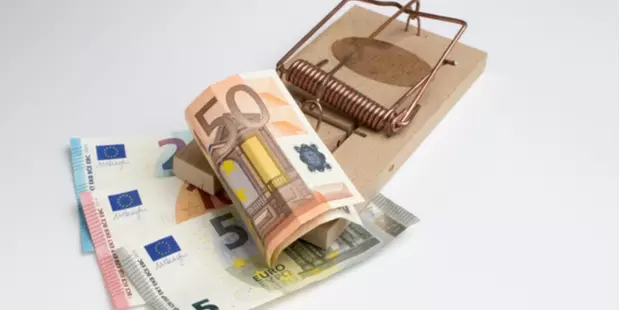To step up your game when you play poker online, you need to be focused. Cautious. And even cunning at times. If you want to win big and make the most of poker promotions, you need to know how to outsmart your opponents and ensure they won't be able to trick you in return.
But how can you do that? How can you take your poker skills to the next level? Learn all about how to set poker traps – and how to avoid them – and get better at playing online poker!
Poker Traps 101: How to Set & Avoid Them
In the dictionary, a trap is described as something that catches others unawares or as a situation that is practically impossible to escape.
When it comes to poker, traps help you control the situation and convince your opponents to act in a way that will benefit your bottom line. Interestingly enough, there are many different ways to achieve that goal. And if you are familiar with all of them – you will also be able to avoid them when others try to use those methods against you.
Now is your chance to find out what poker traps look like and how to use them to your advantage!
Top 3 Online Poker Traps
- Get caught in a bluff – One of the most common poker traps is the fake bluff. The moment you join an online poker table, you have a unique chance to decide what kind of a first impression you leave. Some players prefer to assert their dominance straight off the bat, but that might put a target on your back.
Instead, you can make your opponents believe you are a weak and easy-to-read player. Make sure you are caught bluffing, so the next time you show confidence in your hand – your opponents won't believe you.
That way, you will be able to convince them to stay in the game and grow the pot – all while you have a strong hand that will normally make everyone fold. - Downplay your hand – Another well-known way you can use to deceive your opponents is by making them believe you have a weak hand. At first, you should make everyone around you believe that you are a tight-aggressive player. When you get strong hands, go all in, and show your opponents that you aren't afraid of raising when you have a decent chance of winning.
That way, when you play more passively, they will believe you have lousy cards, and they won't be afraid of challenging you. So, if you play passively when in possession of strong cards, your opponents will think you're not a threat, and they will grow the pot. Stick to this strategy until the river, where you can reveal your cards and walk away with a major win.
However, please note that you won't be able to use this trapping strategy too often, as it can become quite predictable. So, make sure to use it at exactly the right moment! - Switch strategies mid-game – Every player worth his salt knows that changing your playing style is a highly effective tool that can help you win at poker. Players will analyze your moves at the beginning of a poker session to determine how they should act around you.
If you don't allow them to figure out your poker strategy by switching things up regularly, they won't be able to use your poker history against you. That way, you will have more control over the situation, allowing you to deceive your opponents with little trouble.
Avoiding Poker Traps
Now that you know how to set up poker traps, you can use this knowledge to avoid getting caught in one as well. When you're at the poker table, never accept things at face value. When your opponents make moves that are out of character, try to figure out whether they are trying to deceive you or if they genuinely don't know what they are doing.
If you remain vigilant, you will be able to avoid getting tricked by other players.
In Conclusion
When you're playing against skilled poker players, being familiar with the game's rules is not enough to help you win. If you want to dominate the tables, you need to know exactly how to manipulate your opponents. Make them believe you are an inexperienced player and clean them out when the opportunity presents itself.

